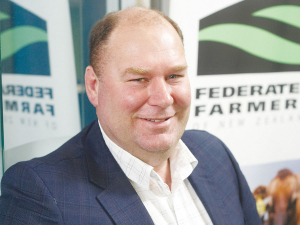Federated Farmers says the Productivity Commission’s recent recommendations on genetic engineering could provide the answer to greenhouse gas emissions.
“Farmers are intensely interested in further reducing their world-leading GHG emissions footprint per kilogram of food produced, but the Federation has been saying for several years now that we need new tools to do so,” says Feds president and climate change spokesperson Andrew Hoggard.
“Genetic modification is one of those new technologies that offers exciting potential.”
Last year, the Productivity Commission’s ‘Reaching for the Frontier’ final report said the Government should undertake a full review of the regulation of genetic modification (GM) to ensure it is fit for purpose and supports domestic innovation.
“We certainly agreed with that at the time. And at the end of last week, there was finally a flicker of interest from the government,” Hoggard says.
In its April 8th “immediate recommendations” reacting to the Frontier business report, the Government said “Government has long considered that the New Zealand brand and value is best met by maintaining a ‘proceed with caution’ approach. However, we consider it timely to start informed conversations around New Zealand’s use of GM technologies.”
GM ryegrass and potentially other gene editing options have been shown to offer significantly reducing livestock emissions “so it’s well past time we get on with these ‘informed conversations’,” says Hoggard.
“Producers and consumers deserve an informed discussion so that they have science-backed information on which to base their growing and eating choices.”



















